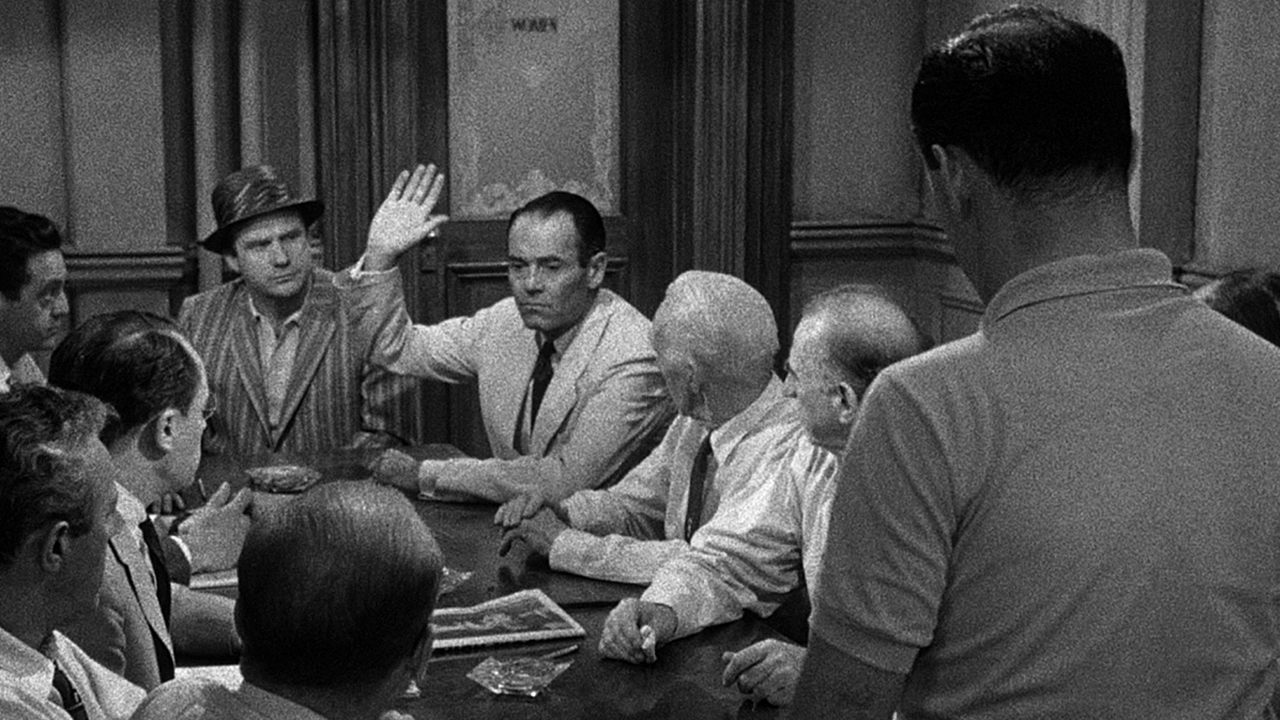 It's not difficult to identify why people consider Woody Allen's work to be unique - his exploration of the mannerisms of the privileged, his vision of New York, and his repeated return to questions of God and guilt over the past 45 years grant him the rare status of being a film director whose name people not only know, but the hearing of it evokes a genuine feeling. Not just 'love him or hate him', but something deeper - we may hear his name, and we may think about how his films have provoked us to ask questions about our own lives. We may also think about the fact that his career is popularly understood to have three movements - the 'early, funny pictures' of 1968-1976, the mostly 'serious, existential' films of the following twenty years, and the bad ones ever since. This critical shorthand doesn't do justice to a life in art - the funny films are sometimes as profound as the serious ones (try 'Sleeper' for magnificent satire of technology addiction and consumerism), the serious ones are often deliriously funny ('Crimes and Misdemeanors' achieves the astonishment of evoking both tears of laughter about the very purpose of comedy alongside a story of a man who has a woman killed because he's scared of his wife and potential lost reputation), and there have been at least a couple of near-masterpieces in the recent period when it has been popular to denounce him ('Sweet and Lowdown' and 'Deconstructing Harry' both stand comparison to 'Hannah and Her Sisters' and 'Annie Hall').
It's not difficult to identify why people consider Woody Allen's work to be unique - his exploration of the mannerisms of the privileged, his vision of New York, and his repeated return to questions of God and guilt over the past 45 years grant him the rare status of being a film director whose name people not only know, but the hearing of it evokes a genuine feeling. Not just 'love him or hate him', but something deeper - we may hear his name, and we may think about how his films have provoked us to ask questions about our own lives. We may also think about the fact that his career is popularly understood to have three movements - the 'early, funny pictures' of 1968-1976, the mostly 'serious, existential' films of the following twenty years, and the bad ones ever since. This critical shorthand doesn't do justice to a life in art - the funny films are sometimes as profound as the serious ones (try 'Sleeper' for magnificent satire of technology addiction and consumerism), the serious ones are often deliriously funny ('Crimes and Misdemeanors' achieves the astonishment of evoking both tears of laughter about the very purpose of comedy alongside a story of a man who has a woman killed because he's scared of his wife and potential lost reputation), and there have been at least a couple of near-masterpieces in the recent period when it has been popular to denounce him ('Sweet and Lowdown' and 'Deconstructing Harry' both stand comparison to 'Hannah and Her Sisters' and 'Annie Hall').
So, from my perspective, the mild groans that have greeted his work for over a decade now are not warranted. His new film 'Blue Jasmine' deserves more of a look than might be assumed at first glance: it's probably his best film for 20 years. Cate Blanchett plays the wife of a Bernie Madoff-type, trying to break her fall from the hard times he caused (and she ignored) by landing on her sister, moving from elitist Hamptons to blue collar San Francisco, from clueless self-centered privilege to broken self-centered loss. It's a departure for a Woody Allen film to challenge the excesses of moneyed cloisters, but 'Blue Jasmine' achieves both critique of the economically aloof and empathy for people who are often too easy to write off as souls because they're rich. Rich, of course, is in the eye of the beholder - just as John O'Donohue said that in order to kill someone you have to treat them like a blank slate, you don't have to be physically poor to recognize what you lack.
Jasmine - a fake name for a fake life - is more than aware of her spiritual poverty. Her journey in this film begins as pure selfishness: casting herself on the mercy of a sister she has previously abandoned because she has nowhere else to go, and doesn't know how to take responsibility for her own bad choices. But something remarkable unfolds - not the predictable pilgrimage of Hollywood recovery. She begins to pick herself up, but is caught in a cycle of temptation to go back to the life she once knew. The security of money is a too easy draw, but the film is wise enough to recognize that rebuilding an old, fake life would require new, fake stories. If the edifice of your previous existence was built on lies, you either have to face your shadow with courage, or you'll stay stuck in a bad dream of the past. Jasmine's dilemma is that she does not know how to ask for the help she really needs, and her social context is based on the pretence that real pain doesn't exist. So here it is: a Woody Allen film that understands the downside of economic wealth, and the necessity of truth-telling, and that inspires empathy for a character who might otherwise be portrayed as a joke.
My new book CINEMATIC STATES explores America through the lens of one film for each state - here it is.



